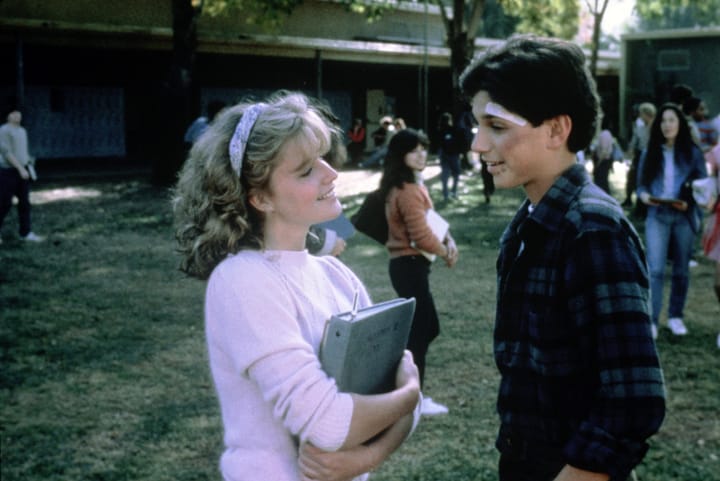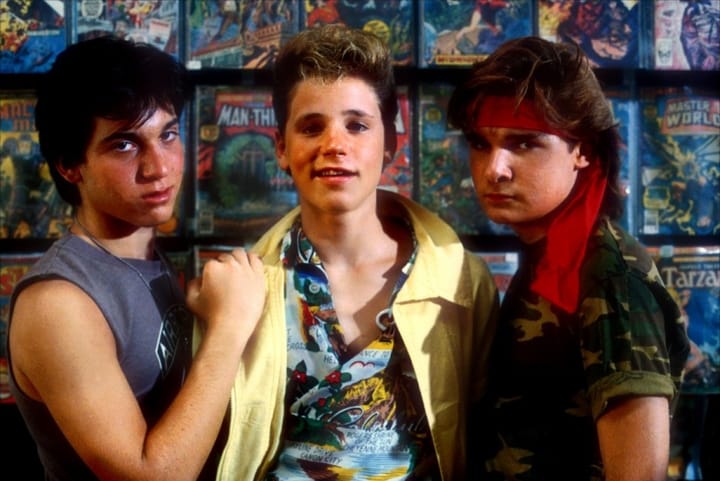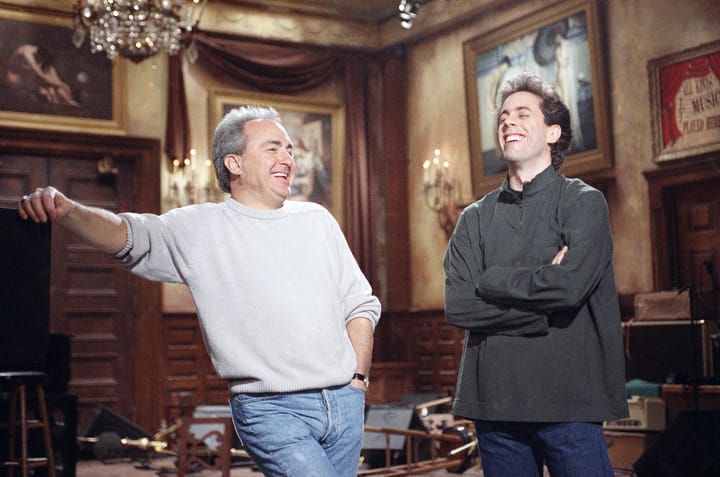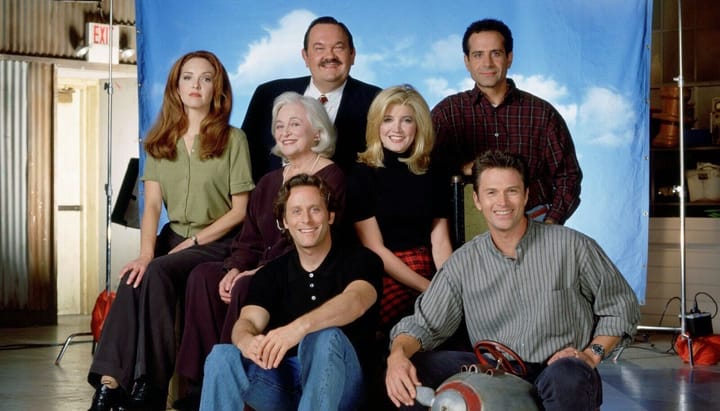September 28th in nerd history: Let's get physical (physical)
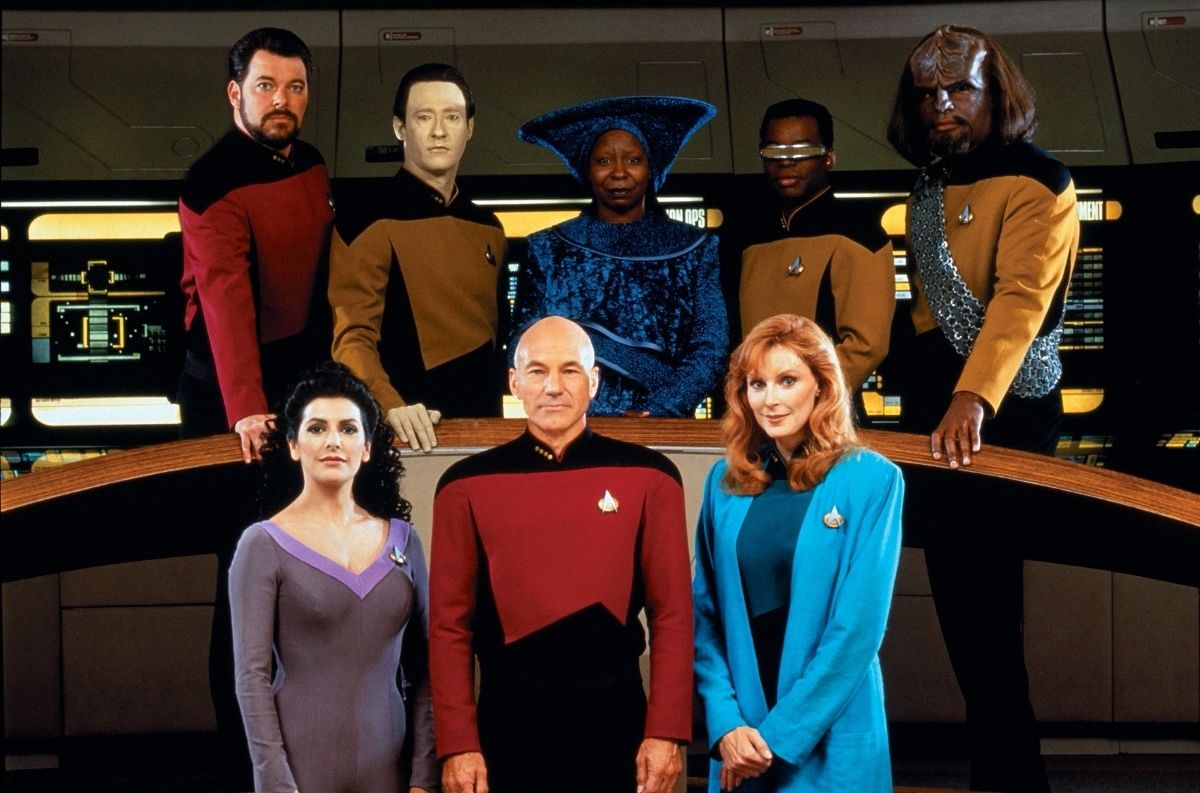
Happy Ask a Stupid Question Day! This might be a confusing day for those who were taught that there is no such thing as a stupid question. Turns out, that was a lie — of course there are stupid questions. But at least for today don't worry about whether the query you're about to ask is stupid or not — in fact, the stupider the better.
 |
This is The Reset Button from Classic Nerd, resetting your day.
September 28 in Nerd History
Here are five things that happened on September 28th for those of us who know the airspeed velocity of an unladen swallow.
I.
Birthdays of honor: Brigitte Bardot (1934), Ed Sullivan (1901), Hilary Duff (1987), Naomi Watts (1968), Janeane Garofalo (1964), Moon Unit Zappa (1967), Thomas Crapper (1836), Candice Bergen (1946).
II.
Today in 1987 a mission was not boldly begun but continued when Star Trek: The Next Generation premiered in syndication.

Following a TV show, animated series, and successful films, Paramount was amazed at the longevity of the Star Trek franchise. 20 years after the original show aired they knew there was more that could be done — and ideally without having to pay the exorbitant salaries their original stars now demanded.
Gene Roddenberry, in his infinite wisdom, decided to set a new show a century after the original, but aboard the same (albeit upgraded) starship. Squarely placed in the familiar Star Trek universe but providing new lore, new actors, and new storylines, the show proved to be an immense hit, running for seven seasons with 178 episodes — plus four films.
There's also that new show that brought back the cast which I assume is terrible because I refuse to watch it.
III.
In 1951, consumers could finally get their hands on the first color TV set sold in stores — the CBS-Columbia model.
After slowly ramping up their in-color programming, CBS was growing frustrated with the slow rate of manufacturers adopting and producing either sets or adapters for watching TV in color. So they said "eff it" and bought their own manufacturer, and a few months later you could buy them in stores.
But CBS was a bit ahead of the curve. After selling only 100 sets out of 200 total shipped, they were allegedly asked by the National Production Authority (NPA) to halt all production throughout the duration of the Korean War. We can't find any information as to why the NPA would make such a request, but that might be because many suspect it was a front to hide the fact that demand for color TVs just wasn't there.
Either way, CBS was forced to buy back the remaining stock and stop selling the sets within less than a month. It wouldn't be until a few years later that consumers (and broadcasting technology) were finally ready for color in earnest. In 1954 RCA began selling the CT-100 with a 12-inch screen that ran about $1,000 a pop.
And on the same day in 1955, the first World Series in color was beamed into homes across the country.
IV.
Today in 1981 Olivia Newton-John released the single "Physical" from the album of the same name. Besides being a perfectly constructed example of '80s pop music, it was a monster hit.
In the U.S. alone it went double platinum and topped the Billboard Hot 100 for 10 weeks straight.
It also cemented ONJ's legacy as a pop superstar and helped her shed the clean-cut persona that had followed her since 1978's Grease — with the song even getting banned in some countries due to its, ahem, suggestive nature.
V.
On September 28, 1958 — 65 years ago — the number one movie in the country was Cat on a Hot Tin Roof.
Starring Paul Newman and Elizabeth Taylor, the movie enjoyed a five-week run at the top of the box office and became the third highest-grossing movie of 1958. It was nominated for six Academy Awards but ultimately didn't win any, losing out on Best Picture to Gigi.

Get the day in nerd history plus news, articles, and rad giveaways directly in your inbox by subscribing to The Reset Button. Human powered, always free.



